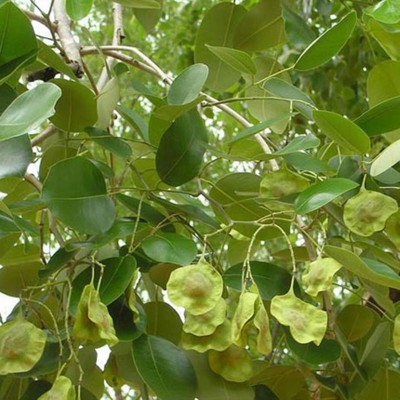Green World RED SANDALWOOD / LAL CHANDAN / PTEROCARPUS SANTALINUS SEEDS ( 250 GMS SEEDS ) Seed(250 per packet)
Quick Overview
Product Price Comparison
The sandalwood tree can grow in almost any part of India (which is why any Indian will recognize the fragrant wood, even though they might refer to sandalwood by one of its many aliases.) The sandalwood tree flourishes in regions where the climate is cool with moderate rainfall, plentiful sunshine and long periods of dry weather. The sandalwood is a root parasite so you have to provide other plants for it to grow along with, especially by the time it is 8" high, Alternatively, when you plant the sandalwood seed, also throw in some toor dal or butterfly seeds. Plant the sandalwood seed ┼Ė" to 1" below the soil and water it lightly everyday. Mix red earth, farmyard manure (cattle manure) and sand in a ratio of 2:1:1 i.e 2 parts of red earth, 1 part of manure and 1 part of sand. Silt also provides very good nourishment to plants. The seeds will start sprouting only in 4 to 8 weeks so don't stop watering if you don't see results - and don't over water, because that certainly won't hasten the process! The soil should always be moist, never water logged, so after it has sprouted, water it only on alternate days. When your saplings are about one month old, transplanting them to a larger area will give them a much higher chance to survive and thrive. Clear an area for planting and dig a pit about 30cm3 in size. Plant the sandalwood seedlings along with the host seedlings - keep a distance of 2.5 to 4m between two sandalwood plants. Usually, sandalwood is transplanted in the months between May and October.


